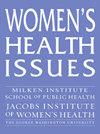The State of VA-funded Women Veterans’ Health Systems Research
IF 2.5
2区 医学
Q2 PUBLIC, ENVIRONMENTAL & OCCUPATIONAL HEALTH
引用次数: 0
Abstract
Background
Women veterans are the fastest-growing population of new users within the Department of Veterans Affairs (VA) health care delivery system. This paper aims to characterize the scope of women's health research funded by VA Health Systems Research (HSR) over the past 10 years.
Methods
Ten years of data (2014–2023) were obtained from a VA financial database that captures research projects that started on or after January 1, 2014. Projects were coded for topical areas and study types.
Results
VA HSR funded 91 women's health studies over the past 10 years. The number of active projects grew from 7 in 2014 to 50 in 2023, with a parallel increase in total funding amount for women's health-focused research projects (nearly $570,000 in 2014 and $8.1 M in 2023). Descriptive or epidemiological studies were the most prominent study type (55% of active projects) and there was a steady increase in intervention and implementation studies. The most common topics were mental health and/or substance use (22% of projects), followed by reproductive health (13%), access/rural health (13%), other chronic conditions (12%), violence and trauma exposure (10%), primary care and prevention (8%), pain (7%), other (5%), comorbidities (3%), post-deployment health (3%), aging and long-term care (2%), and cancer (2%).
Conclusions
Overall, our findings indicate that HSR funding for studies focused on women veterans' health has grown over the last decade, and those studies have diversified in topics and types of study designs. As a learning health system, VA can use these findings to prioritize its future women's health research funding to meet the health needs of women veterans.
弗吉尼亚州资助的女性退伍军人健康系统研究。
背景:女性退伍军人是退伍军人事务部(VA)卫生保健服务系统中增长最快的新用户群体。本文旨在描述过去10年由VA卫生系统研究(HSR)资助的妇女健康研究的范围。方法:从VA财务数据库中获取10年(2014-2023)的数据,该数据库捕获了2014年1月1日或之后开始的研究项目。项目按照主题领域和研究类型进行编码。结果:VA HSR在过去10年中资助了91项妇女健康研究。活跃项目的数量从2014年的7个增加到2023年的50个,以妇女健康为重点的研究项目的资助总额也相应增加(2014年近57万美元,2023年810万美元)。描述性或流行病学研究是最主要的研究类型(占活跃项目的55%),干预和实施研究稳步增加。最常见的主题是精神健康和/或药物使用(占项目的22%),其次是生殖健康(13%)、可及性/农村健康(13%)、其他慢性病(12%)、暴力和创伤暴露(10%)、初级保健和预防(8%)、疼痛(7%)、其他(5%)、合并症(3%)、部署后健康(3%)、老龄化和长期护理(2%)以及癌症(2%)。结论:总体而言,我们的研究结果表明,在过去十年中,高铁对女性退伍军人健康研究的资助有所增加,这些研究的主题和研究设计类型也有所多样化。作为一个学习型健康系统,VA可以利用这些发现来优先考虑其未来的女性健康研究资金,以满足女性退伍军人的健康需求。
本文章由计算机程序翻译,如有差异,请以英文原文为准。
求助全文
约1分钟内获得全文
求助全文
来源期刊

Womens Health Issues
Multiple-
CiteScore
4.50
自引率
6.20%
发文量
97
审稿时长
32 days
期刊介绍:
Women"s Health Issues (WHI) is a peer-reviewed, bimonthly, multidisciplinary journal that publishes research and review manuscripts related to women"s health care and policy. As the official journal of the Jacobs Institute of Women"s Health, it is dedicated to improving the health and health care of all women throughout the lifespan and in diverse communities. The journal seeks to inform health services researchers, health care and public health professionals, social scientists, policymakers, and others concerned with women"s health.
 求助内容:
求助内容: 应助结果提醒方式:
应助结果提醒方式:


